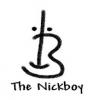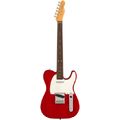Working on songs with a new singer

Member
Posts: 282
Joined: Aug 19, 2013
Let's say, you want to suggest to record a new version of an old song with a "new" singer.
What will happen?
You need to change the key! You need to play your guitar licks in this new key, too.
You need to find the best key for the singer. Sometimes this kills the spirit of the song. Sometimes it sounds better then before.
You need to change the tempo for the singer.
You need to rewrite the lyrics. This can change from take to take sometimes.
You might change the complete arrangement to highlight some skills of a singer, for example you now add a modulation.
You need to compose new parts.
You add rests.
To my opinion it is almost a wonder what some singers can do with fixed templates. Bravo!
:)
What will happen?
You need to change the key! You need to play your guitar licks in this new key, too.
You need to find the best key for the singer. Sometimes this kills the spirit of the song. Sometimes it sounds better then before.
You need to change the tempo for the singer.
You need to rewrite the lyrics. This can change from take to take sometimes.
You might change the complete arrangement to highlight some skills of a singer, for example you now add a modulation.
You need to compose new parts.
You add rests.
To my opinion it is almost a wonder what some singers can do with fixed templates. Bravo!
:)

SUPPORTER
Posts: 541
Joined: Nov 25, 2013
As a horn player I can assure you that somebody is always adapting to what's easy for whoever is calling the shots. The pros I've worked with take it in their stride...the number is called..."what key?", OK count it and let's go.
As an example you guitarists (especially if not very advanced) love to play in E. If I'm playing an alto or baritone or sopranino then the instrument I'm playing is in the key of Eb. That means I'm playing in my C#...you get used to it or you don't play. Good singers adapt, prima donas demand you play in their key. If the singer is leading rather than following, you follow them and watch for the retardandos and quirks. I played for a few years in a backing band for an open mike night. It's an experience that isn't always fun but you lean to become a better listener and player/jammer. Most important is that you leave the judgements behind and just try to make the best music you can.
As an example you guitarists (especially if not very advanced) love to play in E. If I'm playing an alto or baritone or sopranino then the instrument I'm playing is in the key of Eb. That means I'm playing in my C#...you get used to it or you don't play. Good singers adapt, prima donas demand you play in their key. If the singer is leading rather than following, you follow them and watch for the retardandos and quirks. I played for a few years in a backing band for an open mike night. It's an experience that isn't always fun but you lean to become a better listener and player/jammer. Most important is that you leave the judgements behind and just try to make the best music you can.
+1

Fender AV II 63 TELE RW RED TRANS
Electric Guitar

$2,055
iThis widget links to Thomann, our affiliate partner. We may receive a commission when you purchase a product there.
Visit Shop
wikiloops online jamsessions are brought to you with friendly
support by:

I support wikiloops because making music costs money, listening to good music is priceless
Neddings